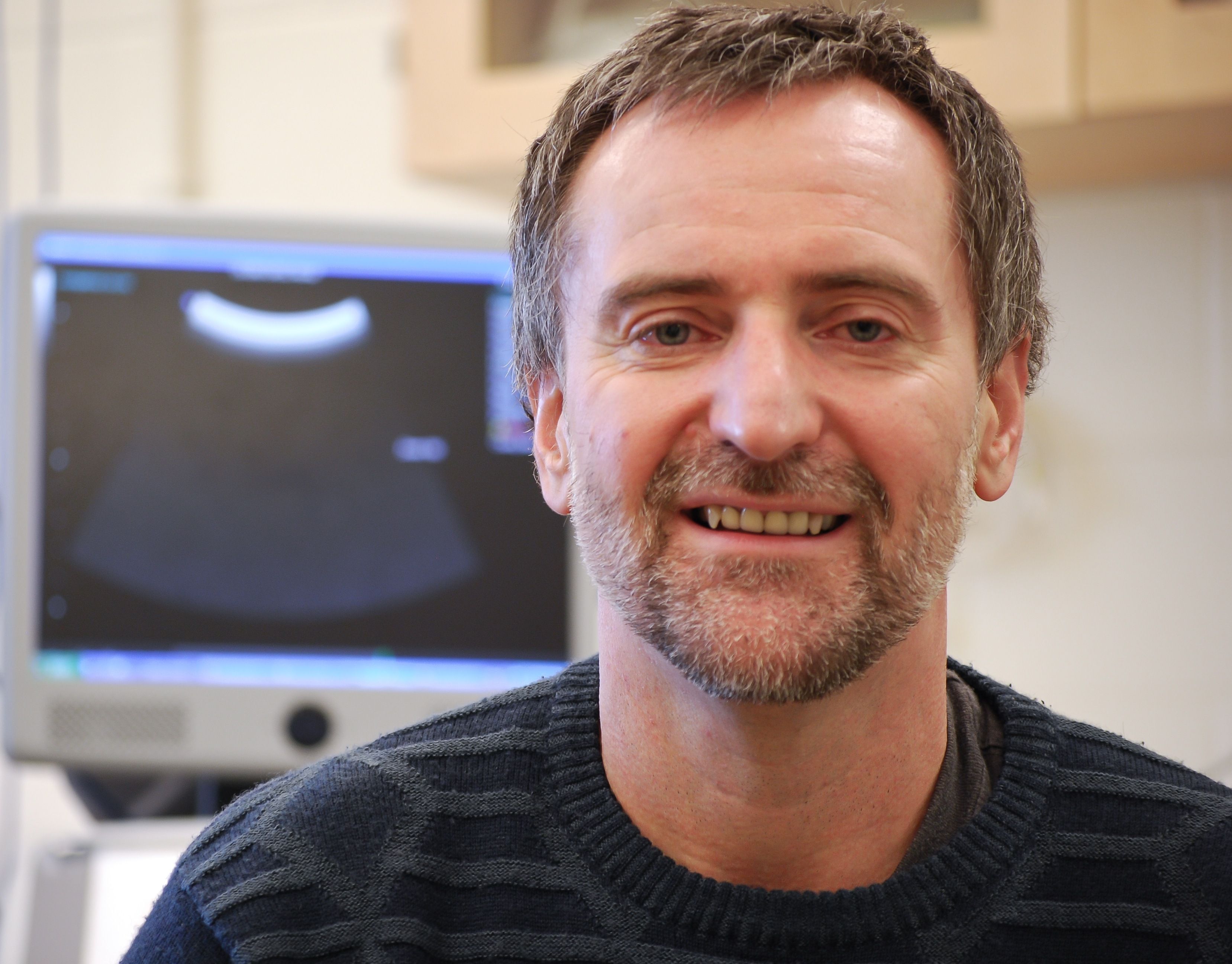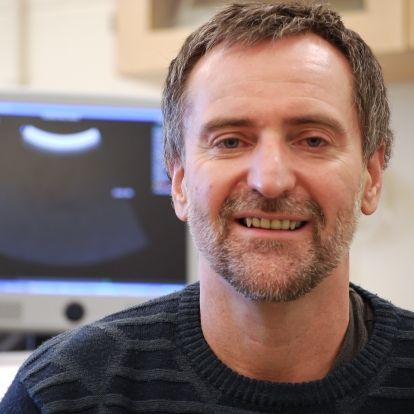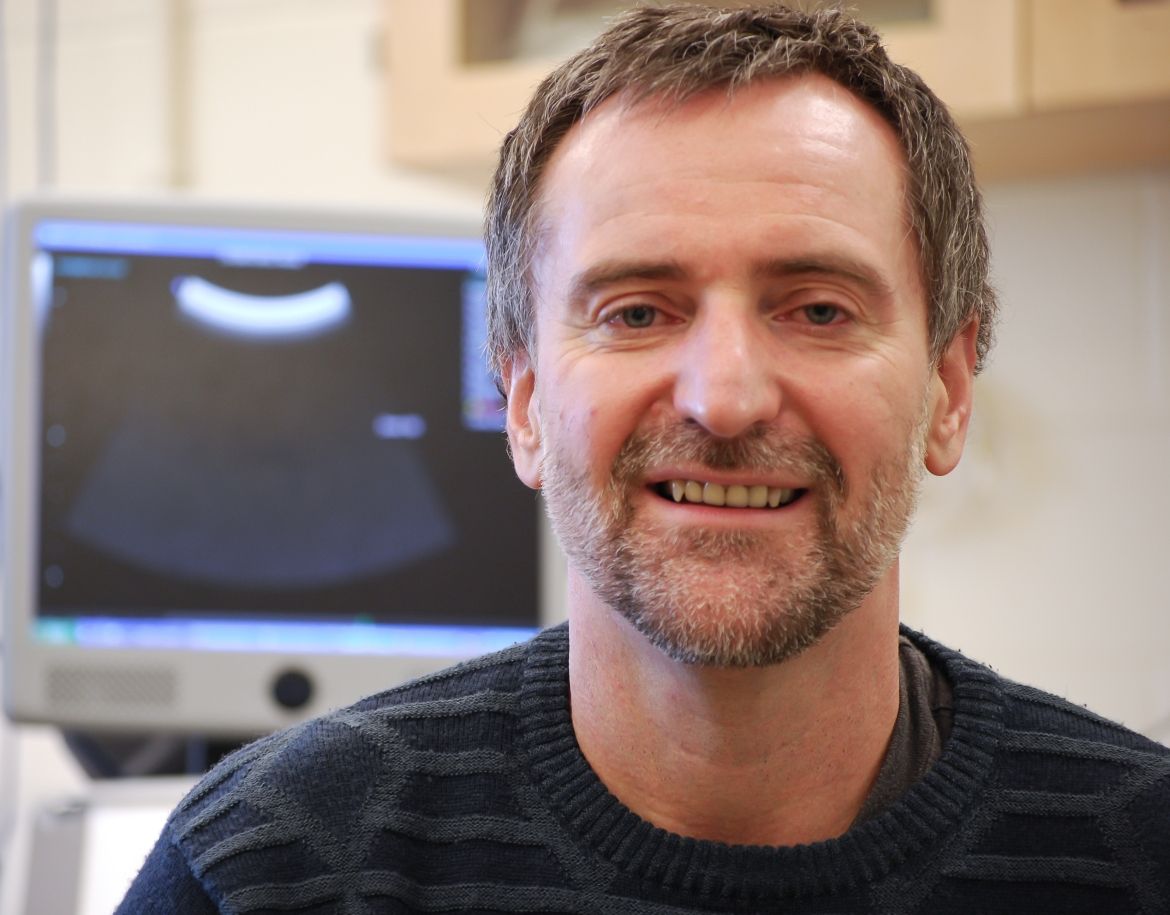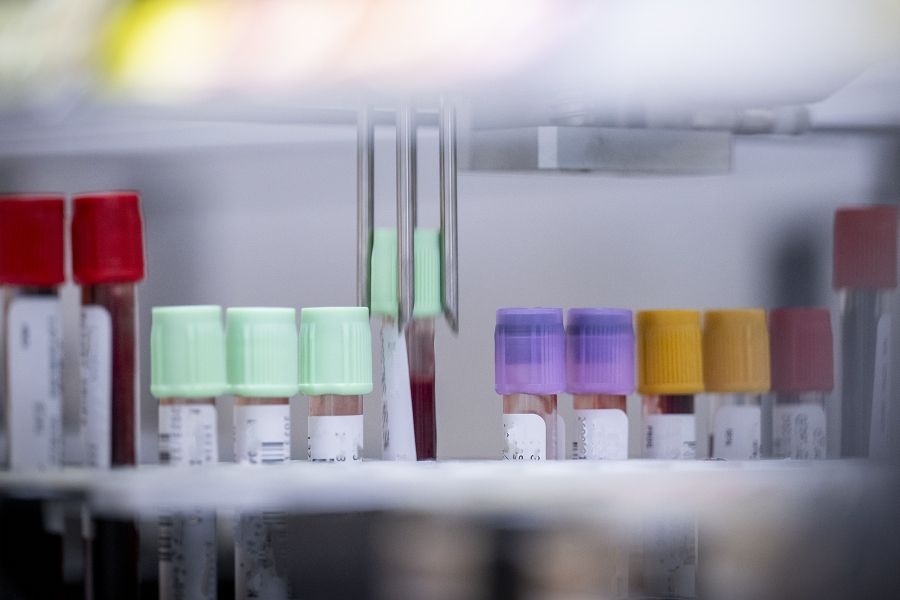
Doctors and scientists in the Kingston General Hospital Research Institute have received more than $1 million from the Ontario Research Fund for investigations into cancer, heart and lung disease, pain, irritable bowel syndrome and eye diseases, as well as research into biomaterials for medical implants.
Six of the seven awards are from the ORF-Research Infrastructure awards, enabling researchers to purchase leading-edge equipment to advance their work. In addition, Dr. Amer Johri (Cardiology) received a $140,000 Early Researcher Award to advance his work using ultrasound scans of a patient’s carotid arteries to detect early stage heart disease. All of the recipients are cross-appointed to Queen’s University. The awards were announced Tuesday by Sophie Kiwala, MPP for Kingston and the Islands.
“This funding recognizes remarkable work being done by the scientists and clinician-researchers in our hospital,” says Roger Deeley, Vice President, Health Sciences Research, KGH and President, KGHRI. “Many of these projects are collaborative endeavours that tap into the strengths of multiple disciplines across our hospitals and our partner university, Queen’s, so these awards will benefit many researchers and ultimately, patients.”
Among Infrastructure Award recipients were Dr. Gabor Fichtinger (Queen’s School of Computing and Research Chair in Cancer Imaging, Cancer Care Ontario) who received $358,342 for “Real-time Navigated iKnife System for Breast Cancer Surgery.” The funding will enable him to develop more accurate tissue measurements in breast surgery, minimizing impact on healthy tissue.
Other recipients and projects include:
- Lindsay Fitzpatrick (Chemical Engineering)
Biomaterial host response analysis and engineering laboratory – $125,000 to develop better biomaterials (materials used in the creation of medical devices such as pace makers or artificial joints) to reduce the risk of rejection within the body. - Nader Ghasemlou (Biomedical and Molecular Sciences/Anesthesiology and Perioperative Medicine)
Neuroimmune interactions in pain - $150,000 to identify the immune targets that control the onset, development and maintenance of neurological pain, with the goal of developing more effective future treatments. - Mark Ormiston (Biomedical and Molecular Sciences)
Regenerative Cardiovascular Medicine Library - $175,000 to develop new immune cell-based therapies for pulmonary arterial hypertension and other vascular diseases. - David Reed (Department of Medicine)
Nutrient-neural signaling in the colon: a role in IBS - $110,900 to examine the role of nutrient signaling pathways in irritable bowel syndrome, with an aim to develop new therapeutic targets. - Laura Wells (Chemical Engineering)
Laboratory for the development of bioresponsive and interactive ophthalmic biomaterials - $125,000 to develop new biomaterials and modification techniques to improve ocular device integration and function for patients suffering from eye diseases.
About the Ontario Research Fund - Early Researcher Awards
The Early Researcher Awards program provides funding to promising early career researchers – those no more than five years into their independent academic careers and no more than 10 years from having completed their doctoral degree - to enhance their research and support their efforts in establishing a research team.
Each award to a leading researcher is a maximum total value of $140,000. The award must be matched by an additional $50,000 from the researcher’s institution.
About the Ontario Research Fund – Research Infrastructure
The Research Infrastructure Fund provides research institutions with funding to help support infrastructure needs, such as modern facilities and equipment.
The fund is further subdivided into three funds;
- The Large Infrastructure Fund supports the costs of building/renovating and equipping facilities to conduct collaborative academic research;
- The Small Infrastructure Fund helps cover the costs of acquiring or renewing research equipment; and
- The College-Industry Innovation Fund which helps cover the costs of building, renovating and equipping research facilities to promote college-industry partnerships.
Awards under the Ontario Research Fund are funded by 40 per cent each from the Ontario Government and the Canada Foundation for innovation. The remaining 20 per cent is funded from private funding partners or the applicant’s institution.
Gallery


Supplied photo



